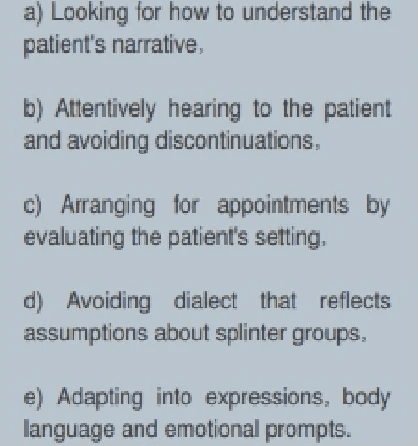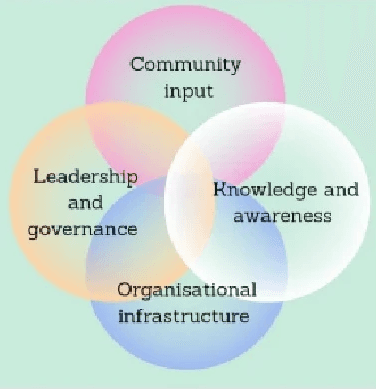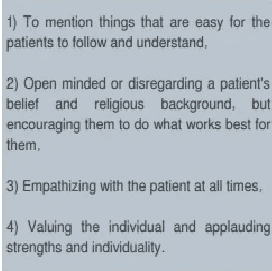Cultural competence in bedside medicine
March 3, 2023
Written by : SATHISHA DESHAN LIYANAGE, CLASS OF 2025
Why Cultural and Diversity competence Matter in Healthcare?
Cultural Competence is referred to as a collection or a blend of knowledge, attitudes, behaviors and policies that operate together in a structure, system, organization or among professionals to allow successful multicultural work. Culturally competent care means, care that regard to diversity in patient population and society factors that affect health care, such as language, conveying patterns, believes, attitudes and efforts. It's important to note that cultural competence, which associate with race and ethnicity, that goes hand-in-hand with diversity competence, which also contemplate disabled people. Being aware of these facts, it plays a major role in providing effective, person centered care. The elements such as race, socioeconomic status and education on health can influence how individuals experience healthcare. These elements can influence how patients recognize symptoms, when and how to look for care, desire for treatment and constancy for medical plans. When medical practitioners or health care workers are culturally competent, they are well equipped to engage with patients and grow trusting relationships which enable a smooth healthcare delivery, advance the patient experience and improve wellbeing.

How physicians can improve their Cultural Competence?
Although improving cultural competence is a difficult and complex learning process, the foundation for this should be made in medical schools. Such as, engaging in training that boosts intercultural communication skills and responses to cultural differences, studying and engaging with their responses to cultural differences, studying and engaging with their local community, clarifying awareness of their own personal believes and culture, which provides a base to strengthen multicultural awareness, implementation of various training programs for Healthcare workers on improving competency based Medical Education.
At present time, there are various programs which are conducted to improve patient-physician communication skills among various ethnic groups, these programs mainly emphasizes the significance of :

Medical colleges should try to educate doctors who can treat patients from variety of socioeconomic and cultural backgrounds. Medical students must acquire skills in how to link successfully with patients from all ages of life, regardless of gender, culture or financial background. Communication skills are linked with clinical competency and the skill to extract, analyze, and interact relevant clinical details to patients in relation to being crucial to physician-patient interactions in terms of patients satisfaction and involvement during the encounter.
Components of Cultural competence in Medicine
It consists of 5 main elements:
Cultural awareness implying on expanding the right attitude and giving the best health service to all patients.
Cultural knowledge implying looking for information about the culture and beliefs of your patients for better understanding and interaction with them.
Cultural skills implying on your ability to gather relevant data and process it , to help attract or engage a patient in consequential cross-cultural interaction.
Cultural encounter - which motivates health care workers to venture out of the environment they are conversant with and try new cultures and places. They enhance their competence by connecting with people from different backgrounds, cultures and ethnicities.
Cultural desire - essential a strong motivation to learn more about other cultures. It is a strong force that imply the ability to be open to new people, to gain and understanding cultures that are different from yours, and be prepared to learn.

Examples of cultural competence in Medicine
There are many examples of what a health care provider who exhibits cultural competence looks like. A few key traits include:

Cultural competence is mandatory because without cultural competence, the health sector will experience a great loss and ultimately limit the services that it can offer. A well-built background and knowledge of cultural competence averts professional health caregivers from possessing stereotypes and being myopic in their thoughts. It also helps them provide the best service to all, regardless of their social status or belief. Healthcare work can strengthen their cultural competence by continuing education, cross-cultural interactions.

Cultural competence is mandatory because without cultural competence, the health sector will experience a great loss and ultimately limit the services that it can offer. A well-built background and knowledge of cultural competence averts professional health caregivers from possessing stereotypes and being myopic in their thoughts. It also helps them provide the best service to all, regardless of their social status or belief. Healthcare work can strengthen their cultural competence by continuing education, cross-cultural interactions.
